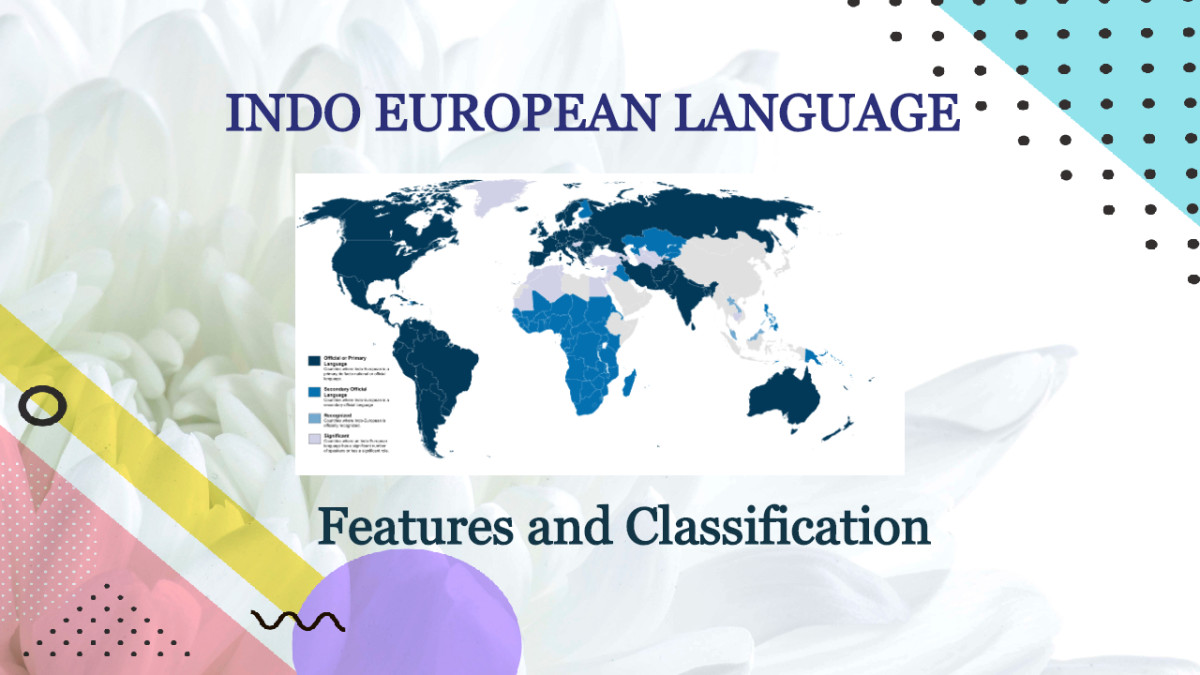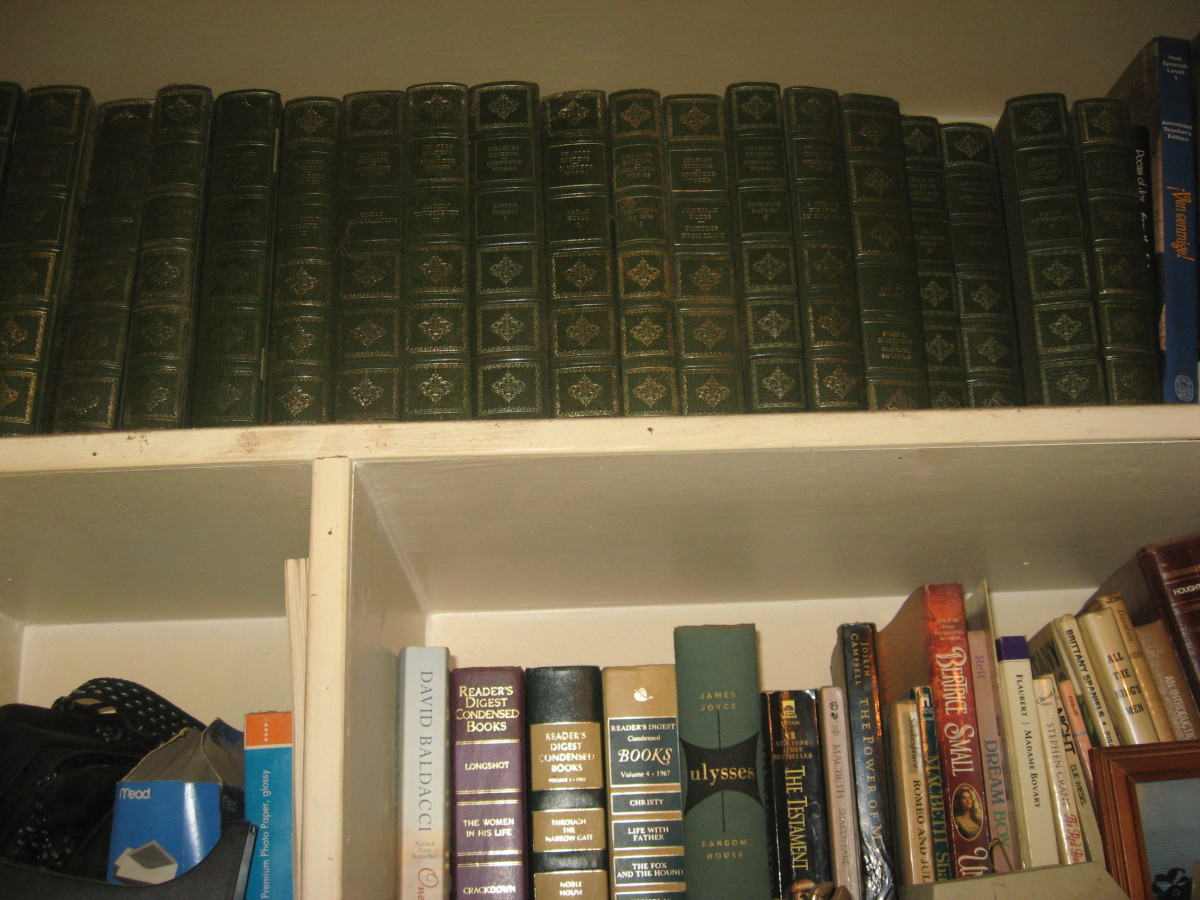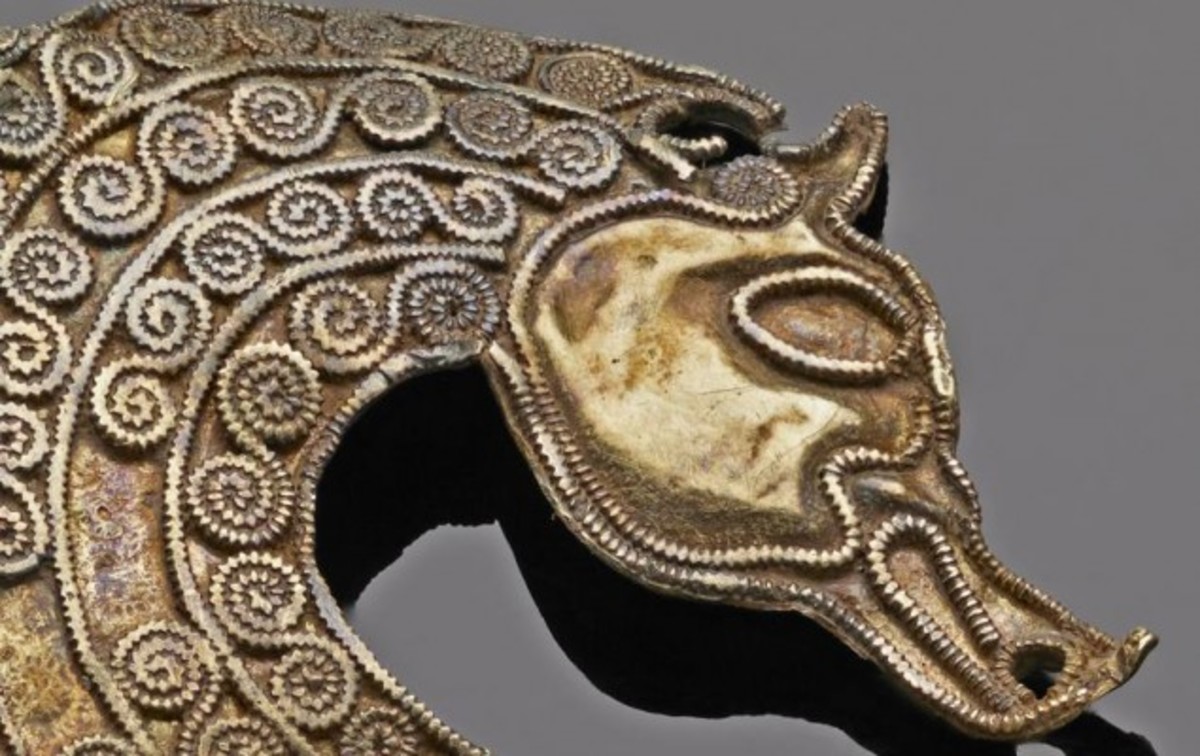History of the English Language
From Proto-Indo-European to Today
I’ve always been interested in the history of the English language, since I first learned about the etymology of words. This interest became more fervent when I began studying to be an English major in college. The English language has a long and fascinating history. From its earliest beginnings some seven thousand years ago, through multiple invasions, to modern inventions, the language has adapted to a constantly changing populace. Along the way, English grammar changed and evolved, and new words were included. Sometimes English struggled for dominance with outside forces, while at other times, the English language embraced these influences. Follow along for a simplified version of the history of the English language!

Proto-Indo-European
The earliest origins of the English language emerged from the peoples who inhabited the wide-ranging steppe located roughly near the Black Sea, now referred to as the Proto-Indo-Europeans (PIE). They date back to around 5,000 B.C. They were semi-nomadic and used wheeled wagons and carts. They domesticated several animals, including the horse, the dog, the sheep, and the cow. They were also farmers, growing mostly grains and cereal crops. They worshipped a chief sky god, along with other deities. Ritualistic sacrifices were common. Humans were buried, often along with their worldly possessions. In some Proto-Indo-European societies, wives and servants of the deceased were killed, and their bodies were buried along with the deceased. This was especially likely if the dead man was an important member of the community.
No examples of written Proto-Indo-European remain. It was an oral language only. Based on evidence gleaned from newer languages, most experts in linguistics accept the existence and the influence of Proto-Indo-European.
Over the centuries, the Proto-Indo-Europeans migrated to other parts of Europe and Asia, carrying their language with them. Proto-Indo-European served as the bases for Proto-Anatolian, Proto-Greek, Proto-Celtic, Proto-Germanic, Proto-Albanian, Proto-Slavic, Proto-Armenian, Proto-Indo-Iranian, Proto-Tocharian, Proto-Balto-Slavic, and Proto-Italic.
Earliest inhabitants of Great Britain
Modern man resided in what are now the British Isles as early as 25,000 years ago. When the last Ice Age seized Britain, its inhabitants migrated to warmer climes in southern Europe. As Britain’s climate gradually warmed, humans began to return. This return-migration began around 8,000 B.C.
By 2,500 B.C., a group known as the Beakers began to arrive in Britain. The Beakers came from the European continent – most likely Spain – and were skilled in working with metals. The Beakers crafted tools, weapons, and ornamental items from bronze, copper, and gold.
By the Iron Age, which began around 800 B.C., some of the Proto-Indo-Europeans had made their way to what is now England. This group we now know as the Brythons, or Britons. They spoke Brythonic, which is a Proto-Celtic language. The Britons lived in tribes, and each tribe had its own king or leader. The tribes also included nobles, warriors, and priests known as “druids.”
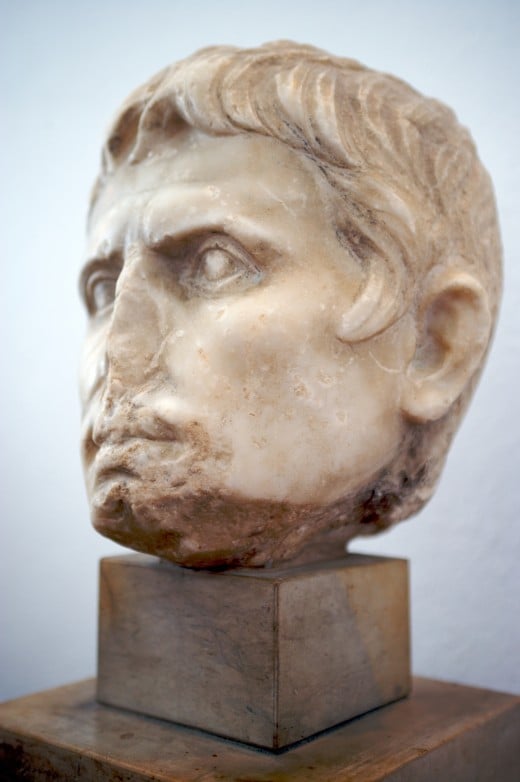
Roman influence on the English language
Proto-Italic evolved into Latin and Italian. In 55 B.C., Roman legions under Julius Caesar made forays into Britain, and more were made the following year. In 43 A.D., a major conquest of Britain, called “Britannia” by the Romans, took place under Claudius. For four centuries, England was ruled by Rome. It was a time of relative peace, as the Roman legions were able to protect the island from invaders. Also, under Roman leadership, the Britons began to see themselves as British. Before the Romans arrived, there was little unity among the various tribes.
Although Latin didn’t have a major impact on the English language, we can still see the influence of it. The Latin word for “camp,” castra, was applied to the names of several campsites used by the Romans that eventually became English cities. These include Lancaster, Winchester, Manchester, Dorchester, Alcester, Chester, Colchester, Silchester, Doncaster, and Leicester.
Latin was the official language of government, and later, of the Church. The masses, however, retained much of their Celtic language. Of course, the English language gained some new vocabulary words from Latin, including agenda, rumor, liberator, dictator, regimen, doctor, labor, rector, abdomen, addendum, exterior, quota, and many more.
By 410 A.D., the Romans had departed from Britain. The homeland was being attacked by invaders, so the Roman legions were needed in Rome. Britannia was now left mostly undefended from invading Germanic tribes.
Germanic tribes and Old English
When the Romans pulled out of Britain, Germanic tribes took full advantage of the situation. Angles and Saxons from Germany, along with Jutes from Denmark, invaded Britannia and settled there. Their language was a Proto-Germanic language that we now refer to as Old English. The earliest forms of the Anglo-Saxon language used an alphabet of runes, called the futhorc. Runes were often carved into wood or stone.
Anglo-Saxon, or the Old English language, soon replaced the native tongue. Little of the Celtic language remained in England. With the invasion of the Germanic tribes, many of the Britons fled to Scotland, Wales, and Ireland.
Beginning in the sixth century, Christian missionaries started arriving in England in order to convert the Anglo-Saxons. Members of the Church were well versed in Latin, and remember – few average Anglo-Saxon citizens could read and write. Most scribes at the time were monks. From the officials associated with the Church, England got more Latin words, including abbot, minister, nun, priest, pope, candle, and school.
There were four dialects of Old English: Kentish, Northumbrian, Mercian, and Wessex. England was still not unified to any great extent under the Anglo-Saxons until Alfred the Great became king of Wessex in 871. Alfred considered himself to be king of all Anglo-Saxons on the island – not just of those in Wessex. Once Alfred was crowned, most important Anglo-Saxon documents were written in the Wessex dialect, and the other three forms of Anglo-Saxon English gradually began to converge into a single English language. Alfred also had several religious books translated into Old English from Latin. King Alfred was able to somewhat unite the Anglo-Saxons, largely due to three reasons: a common English language, a common religion (Christianity), and a common enemy (the Vikings).
Listen to an example of Old English in the following video:
Old English:

Viking influence on the English language
In the late 700s, Vikings began making assaults on Britain, where they often sacked churches and monasteries for their wealth. The Vikings were pagans from Sweden, Norway, and Denmark, and their main target in Britain was the northeast part of the island. They were fierce and frightening warriors, and they sometimes killed monks during raids. Some of the Viking hordes began spending the winter in England instead of traveling back to Scandinavia, which led to permanent Viking settlements in England. The Vikings weren’t just warriors – they were also farmers, and they found English lands attractive for farming. More Vikings arrived and stayed, establishing their power center at Jorvik, which is now called York.
In 886, King Alfred the Great made a treaty with the Vikings. The areas of England that would be controlled by the Vikings, the Danelaw, included the Kingdom of East Anglia, the Kingdom of Northumbria, Nottingham, Lincoln, Derby, Leicester, and Stamford. Ironically, the Danelaw became a target for later Viking raids, and the former Vikings who lived in the Danelaw sought help from the English king, Edward the Elder, who was the son of Alfred the Great. The Danelaw was abolished, and the Vikings and their descendants were largely absorbed in the general population of England. The Viking’s language, Old Norse, added many new words to the English language, including berserk, gawk, sky, haggle, keel, link, muck, skill, freckle, and filly. Other Viking words were tweaked to make new words. For example, a “thrall” was a slave, and “en-“ was later added to form the word “enthralled.”
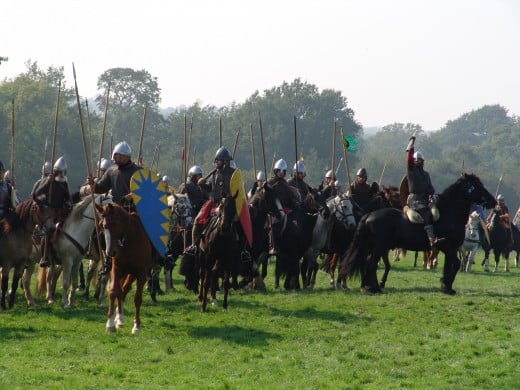
Norman Conquest
In 1066, Normans from France conquered English forces led by King Harold II at the Battle of Hastings. The Norman Conquest had a powerful impact on English society and on English language. The invaders spoke a form of Old Norman, and Anglo-Saxon and Norman combined into Anglo-Norman, which served as the beginning of Middle English.
For almost a century following the Norman Conquest, most of the literature in England was written in Latin or in Old Norman. By the beginning of the thirteenth century, however, the English language became more acceptable to the learned and literate citizens of England, and government documents written in English began to emerge.
The most famous piece of writing in Middle English wasn’t a government document, however. It was The Canterbury Tales, penned by Geoffrey Chaucer in the late 1300s. To hear part of the Canterbury Tales Prologue in Middle English, view the video below:
Middle English

English language and the printing press
Before the printing press, books had to be copied by hand, which was a slow, laborious process. This made books scarce and expensive, mostly limited to the wealthy and to church officials. The first printing press in England was introduced by William Caxton, in 1476. Caxton used the East Midland dialect version of the English language, and this became the standard. Massed-produced reading material was made available to many more people, so literacy increased. People could see how words were spelled and used, giving the English language much more consistency. Writers also began to create thousands of new words through the use of Greek and Latin suffixes and prefixes.
The British Empire
In the late sixteenth century, Britain began to expand its holdings with colonies, territories, and settlements around the globe. Eventually, Britain held lands in the Caribbean, India, Hong Kong, the South Pacific, Africa, the Middle East, and the New World. The English language expanded greatly as new words from these lands were added. Oftentimes, words were “anglicized,” although some remained in their native form.
Samuel Johnson’s influence on the English language
Samuel Johnson, born in 1709, was an English essayist, editor, biographer, and poet. Johnson and other learned men of the time felt that a well written dictionary would help standardize the English language even more than the printing press had done, so in 1746, Johnson began composing his famous dictionary. A Dictionary of the English Language was published nine years later, in 1755.
Johnson’s dictionary was by far the best lexicon that had been written in and about the English language. In addition to definitions and spellings, the book included guidelines for grammar and usage. It quickly became the authority on the English language.
The Industrial Revolution
England’s Industrial Revolution began in the eighteenth century and had yet another impact on the English language. For one thing, new terms associated with factories and goods were used. For another, many people began moving from farms and remote rural areas into large manufacturing cities. The country folk were exposed to a more “citified” version of English, and of course, they had to learn and use the new manufacturing terms, too.

Modern English language
The English language is still changing, mostly through the addition of new vocabulary words. From time to time, however, there are slight changes in English grammar, usage, and mechanics, too. As our world and our technology changes, we need new words added to address these changes and technologies. For example, when I was a kid, there was no such word as “laptop” because the device had not yet been invented. Sometimes old words take on new meanings, too. A mouse used to be something that you caught in a trap, windows were something you hated to clean, tweet was bird language, a router was a woodworking tool, and green energy was what Popeye got from eating spinach. Some of the latest additions to the English language include ringtone, agritourism, biodiesel, captcha, webinar, and spyware.
More about the English language, writing, and English grammar:
- Free Online Writing Courses: Teach Kids to be Better Writers
Writing tips for kids are offered here, written by a retired writing/lit teacher. - Norman Conquest and the English Language
The effects of the Battle of Hastings and the Norman Conquest on the English language are discussed. Printed and spoken examples are included.


